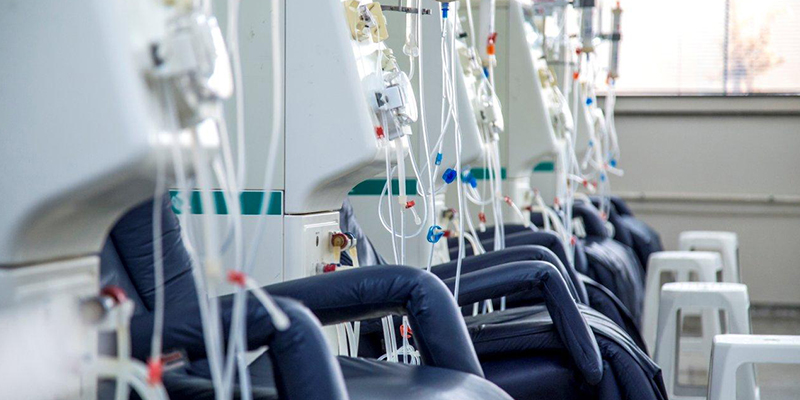A majority of people believe that dialysis replaces the function of healthy kidneys. This is not completely true as the sole purpose of kidneys is not just to remove waste products and excess fluid from the body in the form of urine but, kidneys have other duties as well. Among the various other functions, kidneys also synthesize and release hormones that regulate certain bodily functions. Unfortunately, dialysis is unable to manufacture these hormones and that is why patients in the later stages of chronic kidney disease (CKD) will need medical supplements to compensate for the hormones their kidneys are unable to produce.
Dialysis removes fluid and wastes
When kidneys are damaged, they fail to efficiently remove excess fluid and wastes from the bloodstream. Consequently, waste such as nitrogen and creatinine build up in the bloodstream due to which patients feel weak, ill and discomfort. Dialysis filters and purifies the blood and thus help bringing relief from these symptoms. This is the primary benefit of dialysis.
Dialysis regulate electrolyte levels in the body
Electrolyte encompasses certain minerals essential for proper functioning of the body. We obtain these minerals from the food we eat. These minerals are maintained at an optimum level and anything higher or lower than the optimum levels will lead to sickness. Healthy kidneys help in maintaining electrolyte levels by storing the required quantity of minerals and filtrating the excess.
Standard hemodialysis systems being used today remain a vital and important life-supporting treatment for Chronic Kidney Disease (CKD) patients. Over the years, dialysis technology has improved the survival rate of patients with end-stage renal disease. However, conventional hemodialysis still has a very long way to go in replacing the function of normal kidneys.
Dialysis machines make use of a filter, called a dialyzer that actually filters the blood. While the dialyzer filters the patient’s blood, the dialysis machine pumps it and monitors its circulation outside the body. The hemodialysis machine is also used to maintain the composition of the dialysis solution and introduce anticoagulants into the blood.
Recent technical advancements in specifications of dialysers and the improvements in the membrane characteristics have resulted in multifold improvements in the efficiency and quality of the hemodialysis. Trivitron’s ‘T’ Dialyser that comes integrated with improved membranes, features stronger ability to remove toxins. It is one of the most advanced dialysers presently available.

